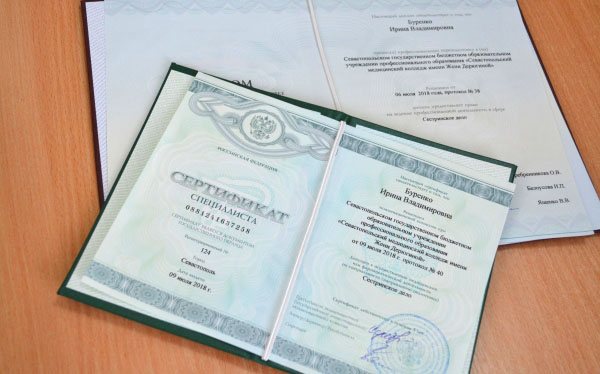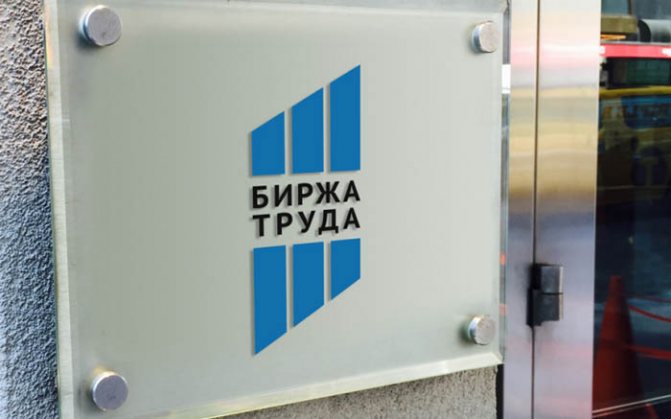Who can take courses from the Employment Center
Not all citizens registered with the Employment Service are allowed to take courses in a new specialty. Due to the fact that training is conducted by teachers of certain educational institutions, and “free” courses for the unemployed are paid for by the state, there are a limited number of places to take them. They are offered only to certain categories of people:
- Incompetent citizens officially recognized as such;
- Citizens who are raising a disabled child;
- Military personnel who have retired due to length of service;
- Persons who served under conscription, but after being reinstated, were dismissed within three years prior to applying to the stock exchange.
In addition, retraining is offered to citizens who have been registered for more than six months, but have not yet found a place of employment. Each unemployed person is given an independent choice of the direction of future education. After completing the courses and receiving a certificate, labor exchange employees offer vacancies in a new area of activity that is in demand in a given region.
In the event that an unemployed person cannot independently decide on a specialty for which to study, government representatives offer him specialized assistance in vocational guidance.
Advantages and disadvantages of retraining from the Employment Center
Retraining from the labor exchange has its advantages and disadvantages. Let's look at the advantages:
- receiving benefits;
- new professional skills;
- the opportunity to find a new job;
- special programs for disabled people and convicted citizens.
As for the minuses, they are:
- In-demand destinations fill up quickly, so periodically you have to wait for a new one;
- the vocational training program in free courses may not be the latest, which means the need for independent partial training;
- A citizen is removed from the labor exchange after he has twice refused the offered vacancies.
Educational programs and professions
Citizens of pre-retirement age are trained in the most in-demand specialties in a particular region. Lists of professions for training or advanced training are approved by regional governments, so each region has its own, depending on the specifics of the labor market.
Please note that in order to take advanced training courses, pre-retirees must have secondary vocational or higher education. If it is not there, you can only learn a working profession.
You can view the list of areas in which pre-retirees can study on the official website of the employment service of a particular region. Eg:
- In Bashkortostan they train to become repairmen, forklift drivers, cooks, and machine operators.
- In the Ryazan region - accounting and tax accounting, office work and personnel records, 1C.
- In the Krasnodar region - security guard, carpenter, waiter, cashier, plasterer, electric and gas welder, bricklayer, etc.
- In the Kamchatka Territory - a fitter, a maid, a secretary-assistant, a plumber, etc.
In many regions, courses on improving computer literacy and the digital economy are in demand.
Photo pixabay.com
Choosing a specialty
Taking courses at the Employment Center, of course, cannot replace specialized secondary or higher education. The duration of training can vary from 1 to 6 months in accordance with the training program and the number of training hours.
If a citizen cannot independently determine what profession he wants to connect his life with, but does not want to work or cannot find a job based on the previously obtained one, then a professional consultant, in accordance with the results of the conversation and tests conducted, will help determine the appropriate field.
Among the main areas of this activity are educational programs:
- for specialists and workers in the amount of 100 pcs.;
- business sphere – 85 pcs.;
- a driving school that trains drivers of all categories.
Thus, citizens who want to connect their lives with the working sphere can learn: high-altitude work, boiler and gas maintenance, welding work, construction trades, crane maintenance, metalworking, logging, maintenance of pressure vessels and other in-demand specialties.
In addition, you can become one of the following specialists: an accountant, a gas and smoke protection service foreman, the head of an occupational safety organization, a person responsible for a crane or a thermal power plant, etc.
Business education courses are also conducted, after successful completion of which you can get a job: as a manager in various fields (marketing, sales, purchasing, etc.), secretary, cashier, declarant, and also realize yourself in state and municipal procurement.
A complete list of professions can be found at the employment center at your place of permanent registration.
How the training works
The process of obtaining qualifications is regulated by the internal regulations of the educational institution, which provides for exclusively full-time education. The applicant receives double support: from the employment service and the educational center.
Services
After registering with the employment center, you can count on the following assistance:
- assistance in finding a job;
- social adaptation;
- registration of benefits and additional payments;
- adaptation in a team, including psychological and professional support;
- opening your own business, increasing its competitiveness.
Types and forms of training
Cooking courses from the employment center.
Classes are conducted exclusively in person. The teacher provides information to a group of applicants or individually, which often occurs to prepare a specific candidate for a burning vacancy in the employment center database.
The type of training depends on basic knowledge and experience:
- preparation – involves mastering a new direction;
- advanced training – mastering additional knowledge based on the existing specialty;
- retraining – expanding knowledge in another field of activity.
The training is carried out according to a modular program, which allows the unemployed to obtain an in-demand profession in a short period of time. This is facilitated by the modern approach of educational workers who rely on students to independently master a large amount of material and present information in a playful way. Each topic and the training program as a whole are assessed through testing and examinations.
On average, the requalification process takes about three months.
Where and how do studies take place?
The educational process is conducted by teachers of educational centers who have entered into a partnership agreement with the employment service.
Applicants studying at an employment center have the right to combine retraining with paid public work. At the same time, the procedure for paying scholarships is not revised if the so-called student regularly attends courses and masters the taught material well.
The actions of employment center employees who send an applicant to study in another area are completely legal. In this case, the state assumes the following financial responsibility:
- compensation for travel on both sides of the route;
- daily expenses during the move;
- payment for housing during the period of study.
What professions can you learn at the employment center?
When contacting an institution, you can find out in advance what courses you can take at the employment center in order to choose the profession you are interested in. The list of courses is constantly changing and depends on the city in which you live. Training or retraining for another specialty at an employment center is usually carried out for professions that are relevant in the city or region.
What specialties are taught at the employment center:
- economist accountant;
- mechanic, tiler, turner;
- pastry chef, baker, bartender;
- hairdresser, manicurist;
- waiter;
- elevator operator;
- programmer, graphic designer;
- pharmacist, nurse.
You can find out exactly what courses the employment center offers in your city on the organization’s website or in person by contacting specialists.
Each applicant must be offered two course options: in case of refusal, they will have to reapply for the opportunity to study.
How the training works
The type of training depends on whether the person has work experience and profession:
- Preparation involves mastering a new specialty.
- Advanced training - helps to expand the knowledge available in an already mastered specialty.
- Retraining is necessary to gain knowledge in a different field of activity.
Any type of training takes place exclusively face-to-face, in a modular format, which involves acquiring knowledge and skills in a short period of time. This is possible thanks to the work of qualified specialists teaching a particular discipline. There is also an emphasis on self-study of information by teachers. The assimilation of acquired knowledge is controlled by conducting tests and exams.
Most often, training takes about three months, sometimes it takes six months. There is no fixed start date for the courses: everything depends on the size of the groups.
Upon completion of a training or retraining program at an employment center, you must pass an exam to receive a certificate.

What courses can you take and complete from the labor exchange in 2020-2020?
› Free courses at the Employment Center are aimed at professional retraining of personnel for their successful employment. Every willing unemployed citizen has the right to register his status at the labor exchange and undergo training. The employment center is a government agency focused on providing assistance to people in need of work.
The institution's database contains vacancies that are offered to the unemployed population. The labor exchange pays benefits every month.
Citizens also have the right to undergo free professional retraining courses. The right to undergo free training from the Employment Center is given on the basis of Federal Law No. 1032 “On Employment of the Population in the Russian Federation” dated April 19, 1991, and. They indicate that all unemployed people have the right:
- to freely choose one’s profession;
- for protection against unemployment;
- for free assistance in finding a job.
- for complete information about the situation on the profession market;
Download for viewing and printing: Approximate list of educational areas:
- Information Systems;
- crane operator;
- cook;
- information Technology;
- storekeeper;
- warehouse and transport logistics;
- driver (category C and B);
- cashier;
- security;
- tailor.
- tourism manager;
- salesman;
- hairdresser;
Attention! This list may change depending on the location of the labor exchange. The exact list of training areas can be clarified at the Employment Center at your place of residence. The duration of training ranges from 1 month to six months
Upon completion of their studies, students are issued a diploma of professional development. Retraining at the Employment Center is available to citizens who have been unemployed for 6 months or longer. The purpose of retraining is to acquire new skills and abilities for successful employment, if previous education did not contribute to improving the working situation. People have the right to independently choose the direction of vocational training
The exact list of training areas can be clarified at the Employment Center at your place of residence. The duration of training ranges from 1 month to six months. Upon completion of their studies, students are issued a diploma of professional development. Retraining at the Employment Center is available to citizens who have been unemployed for 6 months or longer. The purpose of retraining is to acquire new skills and abilities for successful employment, if previous education did not contribute to improving the working situation. People have the right to independently choose the direction of vocational training.
What is the difference between a labor exchange and an employment center?
The unemployment exchange helps citizens find suitable vacancies. It is important to understand that the labor exchange and the employment center are one and the same thing, so you should not doubt the reliability of such organizations: you can trust them with your personal data and finding a job for you.
If you contact an agency that calls itself a labor and employment center, where they demand money for finding a job, do not use its services under any circumstances. Such institutions must work with applicants for free - they usually take payment from direct employers who contact them. You can get free help in finding a job only at the labor exchange or employment center, there is no difference between them.
Citizens often ask whether the employment center is a government agency. Yes, since its activities are aimed at helping citizens find work, as well as making payments. Unemployed Muscovites can contact the “My Work” employment service or the “My Career” employment center to receive help. Residents of other cities can find work through the employment center, whose branches are located in the city where citizens are registered.
Biz Compass
But for two years now they have been saying that there is no enrollment in the group and there will not be any.
Is this legal? Organizing various training groups is not an obligation, but a right of government agencies. Therefore, if there is no group, then it means it does not exist. It all depends on the local budget - apparently there is an overabundance of hairdressers, you can train yourself, one way or another, the position will quickly justify the costs. But for two years now they have been saying that there is no enrollment in the group and there will not be any. Is this legal? - Apparently legal. If there are no courses, then look for other courses. “Is this legal?” TsZN enters into agreements with Training Centers. A training schedule for various specialties is drawn up. Apparently the Center has stopped offering training courses for hairdressers. You need to find out for yourself where these courses operate and contact the Center for Significance. with a request to send you for training. Good luck and good luck! I am taking full-time courses from the employment center. What certificate (form) or sick leave should be issued to ME for an EDUCATIONAL INSTITUTION at the clinic when my CHILD gets sick. Should I be given sick leave if I do not work, but study courses and receive a scholarship? Thanks in advance for your answer. While you are registered with the employment service, you must issue a sick leave certificate if you are at home with your child. Good luck to you and all the best! Good day, Svetlana. You will be given (obliged to) a sick leave certificate for child care. You can already provide it to the educational institution. To do this, you need to register with the Central Education Center, and the law does not provide for restrictions on the number of times you can be referred for training. The only thing is that you need to be unemployed! 10 years ago, when I was in school, I worked from the employment center during the holidays. A work book was created. After that it was lost. Started a new one. The new book did not indicate the previous place of work. Today I gave in the documents for a passport. Can I be refused to receive it? I get a free manicure from the employment center. After studying for a month, I understand that they are teaching nonsense, nothing good. Is it possible to leave? Will I need to pay money? It is better to find out the reason at the employment center so as not to guess. Moreover, it is not difficult to do. It could be anything. including delays in funding. I went to study from the employment center. We were simply given certificates, but they didn’t teach us (electric and gas welders!) They gave us manuals, we watched different video films 15 times and that’s it. How can we punish this educational institution and what will it face for such an attitude? In response to the complaint of the Central Workers of the population, they said that since they received the crusts, then work. And I don’t have any skills. Where to complain. Where to complain. - to the prosecutor's office and complain and the central educational institution, together with the educational institution, will receive what it deserves MEASURES OF PROSECUTORAL RESPONSE Article 10. Consideration and resolution of applications, complaints and other appeals in the prosecutor's office 1. Applications, complaints and other appeals are resolved in the prosecutor's office in accordance with their powers containing information about violations of laws. The decision made by the prosecutor does not prevent a person from going to court to protect his rights. A decision on an appeal against a sentence, decision, determination and order of the court can only be appealed to a higher prosecutor. If the actions of officials who violated laws contain elements of a crime or an administrative offense, depending on the nature of the violation of the law, the prosecutor issues a reasoned resolution to initiate a criminal case or a resolution to initiate a case of an administrative offense (Article 25 of the Law, Art. 37 Code of Criminal Procedure of the Russian Federation, Article 25.11, 28.4 Code of Administrative Offenses of the Russian Federation).
- The courses offer mastery of a profession in demand among employers;
- You can try to change your field of activity and succeed in it;
- Learning new skills that won't hurt anyone;
- The learning process is absolutely free for the applicant;
- An unemployed person receives a “scholarship” - financial assistance from the state.
Advantages and disadvantages of courses from TsZN
The most important advantage of courses from the Employment Center is the free learning process.
However, if you look at it more broadly, it is much more profitable to receive education on the basis of the Central Education Center. Advantages:
- free for citizens;
- obtaining education in in-demand specialties;
- receiving financial support for the duration of your studies;
Flaws:
- The employment center employees are not interested in what profession you want to learn. If you have chosen the right profession, you will have to wait.
- The level of teaching in such courses is much lower than in other educational institutions (universities and colleges). Therefore, the level of knowledge will depend only on the student.
- After receiving a new specialty, new job offers will come. The disadvantage is that the salary may be low. But if you refuse the offers yourself three times, you will be denied unemployment benefits.
You won’t be able to choose your dream profession on your own and undergo training through the Center for Education.
The law makes it clear: if it is impossible to find a job that matches your qualifications, training will be offered. If the applicant is an accountant, lawyer, or driver, then finding a vacancy on the stock exchange is not difficult. Vocational training on the basis of the center is not a means of satisfying whims, but a tool of assistance when the needs of society naturally change or as a result of difficulties in a person.
It is difficult to expect that the exchange will provide high earnings. There are also no such guarantees with self-study. The difference is that the exchange, as a giant aggregator, is able to provide a choice not only taking into account skills, but also taking into account physiological, psychological capabilities and requests from all over the country.
It's all about competition among professionals: if it's high, then the price of employees on the labor market falls. Here the stock exchange is not a regulator, but an analytical system. All that remains is to use it correctly, taking into account a sober assessment of the possibilities.
Other notes
Difference from regular training
In 2021, quite a lot of educational institutions have opened in the country, providing the opportunity to independently obtain the desired specialty. However, experts recommend doing this through the Employment Center.
There are several reasons for this choice:
- training is provided free of charge;
- a so-called stipend will be paid monthly - its amount corresponds to the amount of unemployment benefits;
- persons living outside the city are provided with a place in a dormitory and coverage of the cost of tickets from the place of study to the place of residence;
- in most cases, training occurs with a further guaranteed device;
- if the acquired profession allows the possibility of starting your own business, then the Center can receive a subsidy for the implementation of this opportunity in the amount of 107 thousand rubles.
However, again, it is worth understanding that to obtain the right to study, you must remain unemployed for 6 months.
Nuances of choosing a profession
As additional features of the program, it is worth highlighting the priority of the queue depending on belonging to a particular social category of citizens:
- disabled people;
- persons involved in raising a disabled child;
- discharged military personnel;
- recently graduated from an educational institution.
After successfully passing the exams, the certificate of completion of the courses specifies not only the specialty, but also the assigned qualification.
Process overview
Relatively recently, Employment Centers switched to a new training scheme. The current program allows you to obtain a specialty in the shortest possible time. Many teachers conduct classes in a playful way to improve the assimilation of information. Some humanities disciplines are left for independent study.
Upon expiration of the training period, the applicant must pass an exam to receive a certificate. It takes place either orally or in writing - at the discretion of the citizen.
Training for pre-retirees at the WorldSkills Academy
You can undergo vocational training or receive additional education in accordance with international standards at the WorldSkills Russia Academy. The program has been implemented since March 2019 with the support of the Federal Service for Labor and Employment of the Russian Federation at the expense of the federal budget.
Advantages of training on the basis of WorldSkills under the “50 plus” program:
- There are 120 areas of study in 7 professional areas: Information and communication technologies: web design and development, cyber security, etc.
- Manufacturing and engineering technologies: agronomy, oil and gas production, mechatronics, electronics, etc.
- Construction and construction technologies: surveying, bricklaying, roofing, carpentry, etc.
- Service sector: confectionery, restaurant service, veterinary medicine, advertising, medical optics, tourism, etc.
- Creativity and design: video production, industrial design, photography, jewelry making, fashion technology, etc.
- Transport and logistics: body repair, car painting, locomotive driving, freight forwarding, operation of agricultural machinery, etc.
- Education: preschool education, teaching music at school, etc.
To study at the WorldSkills Academy, you need to register on the program website and indicate the competencies you are interested in. Next, you will be asked to take a test on the selected competencies, after which recommendations on the training program will be given. A pre-retirement student will need to choose a convenient training schedule and center for taking courses.
Who does the employment center grant the right to free training?
Any unemployed citizen registered with the employment center can learn the basics of a new profession. The following prerequisites are considered reasons for participation in the educational program:
- the applicant lacks a specialty;
- inability to perform professional duties as a result of loss of qualifications;
- absence in the database of the exchange of vacancies corresponding to the qualifications of the unemployed.
The purpose of training is to acquire new knowledge with a view to implementing it in a new workplace.
The state program for providing studies from the employment center is designed for people of different ages who cannot apply their basic knowledge and experience in practice due to the lack of vacancies. If any applicant receives an order from an employer, he is trained individually, taking into account the specifics of the enterprise’s activities and job responsibilities. In other cases, courses are conducted in a group format.
Who can get a profession from the employment center
Training from the employment center is provided to citizens:
- not having any profession;
- having an unpopular or unclaimed profession in the place where the person lives;
- unable to perform the duties of their profession due to health problems or other significant reasons.
Training courses from the employment center will help you improve your professional level, find a job faster, try yourself in a new profession, or even open your own business.
If you find out what professions are taught at the employment center in your city, and do not find the desired specialty, you may be sent to study in another locality. In this case, you will be provided with financial assistance, including:
- payment of travel costs to and from the place of study;
- daily allowance for the duration of travel (while the training itself is taking place under a certificate from the employment center, no payments are due);
- payment of the cost of renting an apartment or hotel for the duration of your studies.
Subsequently, you may be invited to work in another region if you, as a specialist, are needed for industries and companies located outside your place of residence.
Benefits for training
Referrals for training are issued on a first-come, first-served basis. In this case, priority is given to the following categories of citizens:
- parents of disabled children;
- citizens with disabilities;
- school graduates;
- those who retired from military service and their spouses;
- having unemployed status for more than six months.
In other words, citizens who urgently need work or who have physical limitations can get the opportunity to learn a new specialty on a preferential basis.
What courses does the Employment Center offer?
The employment center is a government agency focused on providing assistance to people in need of work. The institution's database contains vacancies that are offered to the unemployed population.
Registered unemployed people are paid benefits from the labor exchange every month. Citizens also have the right to take free professional retraining courses.
Legislation
The right to undergo free training from the Employment Center is given on the basis of Federal Law No. 1032 “On employment in the Russian Federation” dated April 19, 1991, Art. 9 and art. 12. They indicate that all unemployed people have the right:
- to freely choose one’s profession;
- for protection against unemployment;
- for complete information about the situation on the profession market;
- for free assistance in finding a job.
Download for viewing and printing:
Do you need expert advice on this issue? Describe your problem and our lawyers will contact you as soon as possible.
List of areas for study
Approximate list of educational areas:
- warehouse and transport logistics;
- Information Systems;
- information Technology;
- security;
- cashier;
- storekeeper;
- hairdresser;
- crane operator;
- salesman;
- tourism manager;
- driver (category C and B);
- cook;
- tailor.
Attention! This list may change depending on the location of the labor exchange. The exact list of educational areas can be clarified at the Employment Center at your place of residence.
The duration of training ranges from 1 month to six months. Upon completion of their studies, students are issued a diploma of professional development.
Who can undergo retraining
Retraining at the Employment Center is available to citizens who have been unemployed for 6 months or longer. The purpose of retraining is to acquire new skills and abilities for successful employment, if previous education did not contribute to improving the working situation.
People have the right to independently choose the direction of vocational training. During the period of study, the payment of the monthly allowance does not stop.
After training, specialists from the Employment Center will offer citizens suitable job vacancies.
If a person cannot choose a specialization on his own, the labor exchange will provide him with free consultation on choosing a profession, a conversation with a specialist and the necessary tests.
Situations for referral to courses
List of situations in which the Employment Center sends for training:
- lack of any qualifications;
- it is necessary to improve qualifications for employment;
- Successful employment requires a radical change of profession.
The courses are aimed at:
- effective employment;
- opening your own business;
- increasing professional competitiveness in the labor market.
What does registration at the employment center provide?
The institution keeps records of people who do not have a job and are looking for one. Job seekers are paid temporary benefits until suitable work can be found.
What else does the employment center do:
- studies job demand and supply;
- provides citizens looking for work with information about current professions;
- prepares and implements retraining programs at the employment center, the purpose of which is to reduce unemployment;
- provides subsidies for starting your own business;
- helps in social adaptation of the unemployed.
Training through the employment center is popular. This helps you find a job faster and possibly better paying than your previous one.

Free courses in Moscow at employment centers
In 2015, the Moscow Department of Labor and Employment merged with the Department of Social Protection of the Population. Currently, the Department of Labor and Social Protection of the Population of Moscow consists of two subordinate institutions:
1. State government institution “Moscow Employment Center”.
2. State government institution “Moscow Youth Employment Center”.
Today, there are 53 employment departments located in 11 administrative districts of the capital.
More information about the central control center
Employment centers were created to implement state policy to ensure employment of citizens of the Russian Federation.
The main activities of the Center for Significance:
- Providing advice on:
- supply and demand in the labor market;
- legislation regulating employment and labor relations;
- opportunities for vocational training, employment, opening your own business, choosing a specialty, and participating in public works.
- Information about vacant positions and assistance in choosing the best employment options.
- Free courses, seminars. Organization of free training in new professions for citizens registered as unemployed and who have expressed a desire to undergo an educational program at the expense of the federal or municipal budget.
In accordance with Art. 23 of the Law of the Russian Federation of April 19, 1991 No. 1032-1 “On Employment of the Population in the Russian Federation” vocational training and additional vocational education in the direction of the employment service is possible for unemployed citizens, as well as for women on maternity leave before reaching the age of three age.
Who can study at CZN
Courses at the employment center for women
Women on maternity leave can also take retraining courses or training at the Center. Training for mothers on maternity leave from the employment center is possible after they submit an application.
In addition to the documents that must be provided to all applicants, you must attach a certificate confirming that you are on parental leave. A child's birth certificate and an extract from the work record may also be required - for women who want to undergo training while on maternity leave from the employment center and are not officially employed.
Training for maternity leavers at the employment center takes place on a general basis. However, women with registered maternity leave (pregnancy and childbirth) will not be paid a stipend.
Training for pensioners at the employment center
Training and retraining of pensioners at the employment center is possible if they are unemployed citizens and receive an old-age pension. Training takes place at the same time as for other citizens.
Pensioners also need to attend all classes, take tests, and pass an exam at the end of the program. Citizens of retirement age cannot be denied education.







